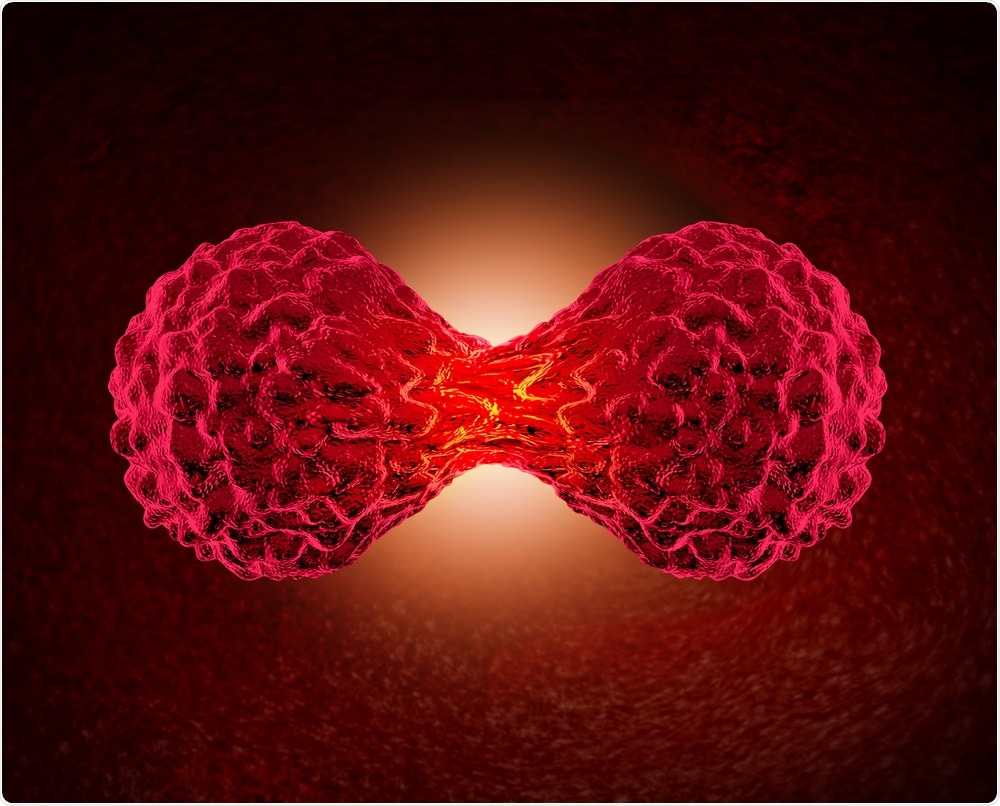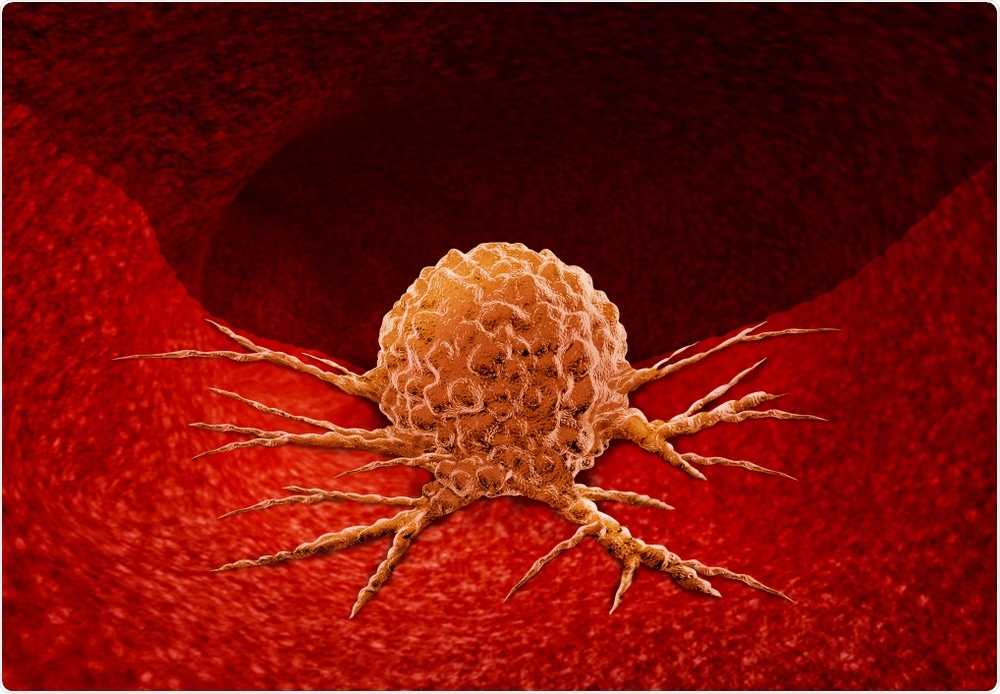I've been interested in trying to find the causes of inherited health conditions. One of those has been working with Gareth Evans, trying to identify why women have a high risk of developing breast cancer in families, particularly at a young age.
 Image Credit: Lightspring / Shutterstock
Image Credit: Lightspring / Shutterstock
Sometimes this is associated with other types of cancer, and other times with breast cancer affecting both breasts.
We know that a lot of women with a very high risk of breast cancer have a mutation in either the BRCA1 or the BRCA2 gene, but there are a number of women that don't show any changes in those genes, as far as we know.
The reason why you can have a lot of people in the same family with breast cancer at a young age but can't find a change in the BRACA1 or the BRACA2 gene led us to starting some research into why that might be, and the other mechanisms that could exist.
What is epigenetic silencing?
One of the mechanisms that can lead to breast cancer is epigenetic silencing. This is not a change in the DNA sequence, but a change to the DNA in some other form.
DNA provides information that makes RNA, and RNA then provides information to make the protein. Often, if you have an epigenetic change, the RNA isn't made as it should, and therefore the encoded protein is dysfunctional or not made at all.
Why is it important to study epigenetic silencing in cancer?
Cancer genes fall into two groups. One group are called oncogenes, and they are overactive. They drive the growth of the tumor. The other group are what we call tumor suppressor genes. They are the brakes on the cancer. If you take the brakes off, the tissue grows more quickly than it should do forming a cancer.
A number of genes that we're interested fall into the tumor suppressor gene category. If that tumor suppressor gene doesn't work as it should do, then that can lead to growth of a cancer, or increase growth of a cancer.
When genes are passed from generation to generation, the changes that occur within them can be inherited, increasing the risk of a person developing a particular type of cancer.
Usually, that person carries one copy of a gene change in every cell in their body. Tumor suppressor genes are typically recessive in their action, so the gene change only becomes important if something happens to the second copy of the gene. If the second copy of the gene is lost or mutated, you have two copies that are not working and this leaves you with a high risk of developing cancer.
 Image Credit: Lightspring / Shutterstock
Image Credit: Lightspring / Shutterstock
There are lots of reasons why the inherited genetic change might happen, and there are lots of reasons why that second gene change might happen.
We know that epigenetic silencing can lead to the second copy of the gene not working. It's not an inherited change, it's just something that happens in a person's cells.
What happens is that there's a change to one of the chemicals attached to the DNA, and that's essentially like a light switch. The sequence all looks the same, but the switch is turned off, so that gene doesn't work as it should.
Epigenetic silencing has been found in lots of different cancer types, but very rarely has it been found to be inherited.
About 10 years ago, a group in Australia showed that this on/off switch could be inherited in some people with bowel cancer, but it had never been previously shown in breast cancer. That's what our work has gone on to show.
Please can you describe your recent discovery surrounding breast cancer.
We started to look at the noncoding part of the BRCA genes (that is the bit of the gene that does not directly provide the information to make the protein) to see if there were any epigenetic changes that could lead to a change in the way that the genes work.
What is epigenetics? - Carlos Guerrero-Bosagna
We identified a relatively small number of families where there were lots of people affected by breast, or ovarian, cancer at a young age. Through genetic testing we didn’t identify a change in the BRCA1 or BRCA2 gene.
The theory was, either, it could be a change in a completely different gene that had led to their condition in the family, or, it could be a change in the BRCA1 or BRCA2 gene that our technology wasn’t able to identify.
We looked at the RNA copy of the BRCA1 gene and found that the expression levels of RNA were much lower than they should be. That told to us that something must be happening to the BRCA1 gene, but when we looked at the sequence, it looked absolutely fine.
That lead us to thinking could there be something happening in the on/off switch at the beginning of the gene, which is called the promoter. From there, we started to look into the methylation pattern.
At the beginning of a gene, the DNA sequence is often a C followed by a G, and that repeats itself. Those C's can be modified in a particular way by adding a chemical making them “methylated”.
If they are highly methylated, it means the gene is switched off, and if they are not methylated, it means the gene is switched on. For most genes the promoter is un-methylated, and allows the gene to work, but if the gene promoter becomes methylated that means it’s switched off.
We used a technique called pyrosequencing, which measures the methylation pattern across the promoter of BRCA1. We were able to show that this was very highly methylated, which would be consistent with the gene being switched off. That's why the RNA levels were very low.
Then we used another technique called bisulphite sequencing, which showed exactly the same thing: the promoter was methylated. We then looked at other members of the family that also had breast cancer and found the exact same pattern.
It was clear that this hypermethylated promoter was being inherited within the family. That's what we call an epigenetic change.
What proportion of women with inherited breast cancer do you estimate to be affected by epigenetic silencing?
We think around one or one and a half percent of people with inherited breast cancer have this genetic change. That's just based on our figures, but it will become much clearer when other groups have started to undertake this analysis within their own patient cohorts.
We suspect that we've identified one change in the DNA sequence, outside of the BRCA1 gene, that can lead to this change in the promoter. It's quite possible that there are other genetic changes sitting outside of the gene that could also lead to this hypermethylation pattern.
We won't know that until other groups have undertaken the analysis on their samples are available to them. It’s difficult then to know, in exact numbers, how many people that equates to across the country.
What options will this provide for women who are at high risk of developing breast cancer?
If we are able to identify the specific gene change, or genetic mechanism that has led to the breast cancer within their family, then we’d be able to offer testing to other family members. For women with a family history of breast cancer, this can clarity whether they're at increased risk or not.
Already within the two families that we described in our research, we've been undertaking testing of younger, at risk, family members. For some of those we've been able to identify that they do not carry this promoter Hypermethylation, and therefore they are not at an increased risk of breast cancer and don't need any additional follow up or screening.
For those individuals that carry the gene change, then you can be more definitive about the type of screening, and the regularity of those checkups, that they might require. Or, you can think about what other interventions, in terms of risk reduction, that might be appropriate for them. Our patients would have a discussion with their clinician, or counselor, about those different options.
A person with breast cancer who has this genetic change would be eligible for PARP Inhibition Treatment. This is a new type of cancer treatment that is particularly sensitive in patients that carry a change in a BRCA gene, because of its particular mechanism of action.
What are the next steps for your research?
The next steps are to see how this particular genetic change could lead to the switching on and off of the gene. That could give us information not just about this, but also other gene changes that might then lead to this process. We're very keen to see whether this type of mechanism can apply to other genes that are relevant to different types of inherited cancer.
Where can readers find more information?
About Professor William Newman
 Bill is Professor of Translational Genomic Medicine at the University of Manchester and the Director of the Greater Manchester Genomic Medicine Centre based at Manchester University NHS Foundation Trust.
Bill is Professor of Translational Genomic Medicine at the University of Manchester and the Director of the Greater Manchester Genomic Medicine Centre based at Manchester University NHS Foundation Trust.
His main research interests are in applying new genomic technologies to gene discovery associated with inherited health problems and how genetic information can make drug prescription safer and more effective (pharmacogenetics).